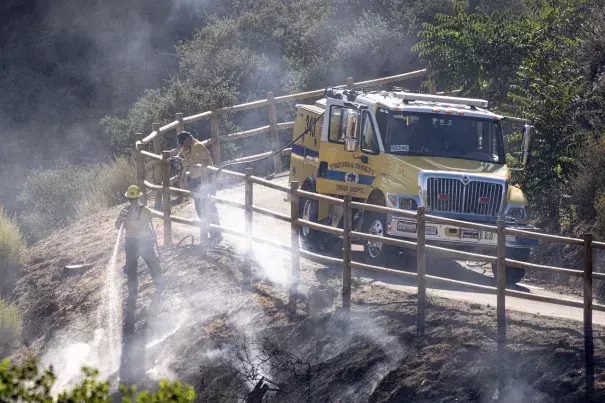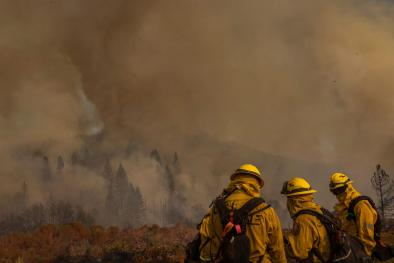Heat will stay stuck on extra high for July in most of US

Climate Signals Summary: Extreme heat and heat waves in the United States and around the world are some of the clearest impacts of climate change on extreme weather.
Article Excerpt: The heat is on. And for most of America it’ll stay on through the rest of the month and maybe longer, meteorologists say.
Widespread and prolonged extreme heat is baking the contiguous United States and meteorologists see no relief in sight, except for a brief time in a corner of the Pacific Northwest.
...
“It’s very widespread and it’s going to be very long lasting,” said Jeff Masters, founder of Weather Underground and now a meteorologist at Yale Climate Connections. “It’s not a record-breaking heat wave, but it is notable for its persistence.”
This is a dangerous type of heat where people need to be careful about heat stroke, stay indoors and drink plenty of water, meteorologists said.
...
A giant ridge of high pressure, parking hot air, is stuck in the Southwest and extends farther east that usual, blocking cold fronts from moving in, Rosencrans said. And the jet stream, a river of air that keeps weather moving, has retreated to Canada, so nothing is pushing the heat along. On top of that, dry weather feeds the heat in a “vicious feedback cycle,” he said.
In Miami, which has experienced its hottest stretch on record, an unusually hot Atlantic Ocean is adding to the problem, not allowing it to cool below 80 at night, said Ryan Maue, a private meteorologist for BAM forecasts.
Masters said there’s “very toasty water pretty much everywhere,” except near Greenland.
Without extensive statistical and scientific analysis, meteorologists can’t say for sure that the heat is due to global warming, Rosencrans said. But this is what scientists expect more of with climate change, he and others said.
Going into July, the world already was feeling the second hottest year on record and that’s a base to add natural variable warm weather factors on top of, Masters said.
Related Content



